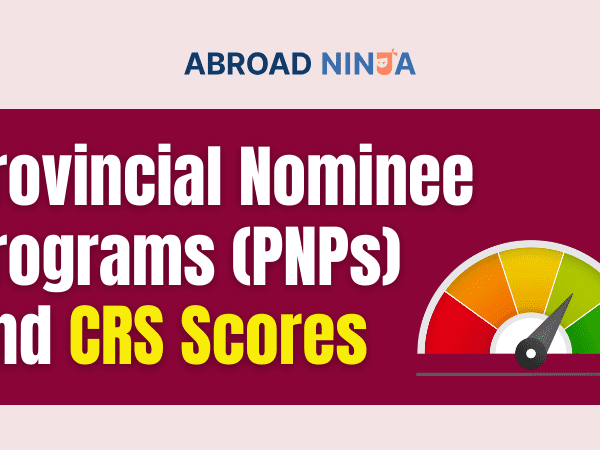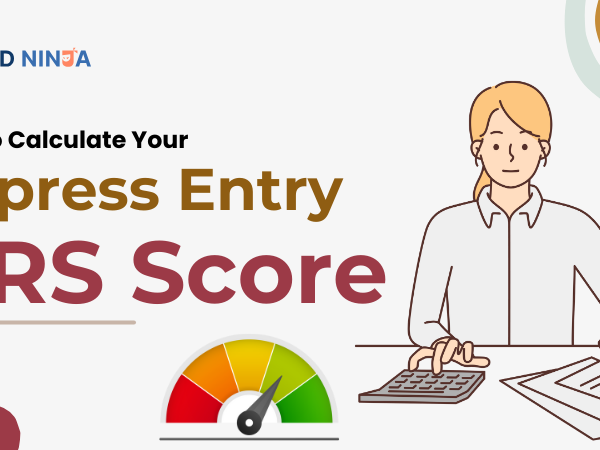Language proficiency has a huge impact on an individual’s Comprehensive Ranking System (CRS) score for immigration. It can open up lots of doors and invite you to apply for permanent residency. Here are some tips to help you score higher in language proficiency assessments.
Dedication, perseverance, and consistent practice are key to mastering a language. To improve, immerse yourself in the target language – read books, watch movies, listen to podcasts/music, and converse with native speakers. Courses or a tutor can provide structure and support.
Also, understand what language tests like International English Language Testing System (IELTS) and Test d’évaluation de Français (TEF) assess. Knowing the format and content will help you tailor your preparation accordingly.
Anna, from Russia, is a great example of dedication and hard work paying off. She attended classes and practiced conversation with native English speakers. She achieved a high IELTS score and received an invitation to apply for permanent residency.
It’s tough to master a new language, but stay motivated and consistent. Improvement takes time and effort. Follow the tips above and keep practicing – you’ll be closer to increasing your CRS score and immigrating successfully.
Understanding Language Proficiency and CRS
Language ability is very important for the Comprehensive Ranking System (CRS), which decides if you can move to Canada. This article will help you to understand how to increase your language scores.
The CRS looks at two languages: your first official language and your second official language. It takes into account four skills: reading, writing, listening and speaking. If you improve your scores in these areas, it will improve your CRS ranking.
To get points, you need to do a language test. This could be the International English Language Testing System (IELTS) or the Canadian English Language Proficiency Index Program (CELPIP) for English, and the Test d’évaluation de français (TEF) for French. Aim to get the highest score possible.
Plus, you might get more CRS points if you know both English and French. If you are bilingual, you might get extra points in the CRS “bilingual” category.
Also Read: Mastering the CRS Calculator for Express Entry
Importance of Scoring Higher in Language Proficiency
Scoring higher in language proficiency is crucial. It increases communication abilities, offers more job opportunities, and helps in cultural integration. Plus, language proficiency is important for immigration processes, like Canada’s CRS. So, achieving better scores in language proficiency can benefit individuals who want to improve their chances of success.
Also, higher scores in language tests like IELTS or CELPIP show an individual’s fluency in English or French. These are highly valuable skills now. Proficient language skills let people engage with people from different cultures, which promotes understanding and collaboration.
Furthermore, scoring high in language proficiency is important when applying for educational opportunities overseas. Universities and academic institutions usually require a specific level of language proficiency to admit someone. A higher score indicates not just competency but also the candidate’s dedication and hard work.
I remember my friend Sarah’s story. She studied French to get a higher CRS score, increasing her chances of immigrating to Canada. She took intensive language courses, practiced with native speakers, and immersed herself in French culture. Her hard work paid off when she got a much higher CRS score, which helped her receive permanent residency.
Overall, scoring higher in language proficiency is essential both personally and professionally. It can open doors to new experiences and help you grow and succeed. Investing time and effort into developing language skills is invaluable.
Tips for Improving Language Proficiency
Dive into the language of your dreams by watching movies, reading books, and listening to podcasts. Chat with native speakers or try a language exchange program. Make a plan to practice daily and learn new words and phrases. Write in the second language to develop grammar and structure. Get interactive practice with language-learning apps and websites.
Also, practice pronunciation, learn the culture, and join forums for extra help. To do great, use these tips and see your skills take off! Start now and watch your progress.
Strategies for Scoring Higher in CRS
Gaining a higher CRS score? Here are some tips!
- Boost language fluency to maximize your score.
- Improve listening capability by engaging actively, and expand your word bank for precise expressions.
- Focus on grammar & structure, and stay updated with current affairs.
- Finally, practice consistently to hone language skills.
An example of success? A professional initially had limited language proficiency, but by following these tips and dedicating time, they achieved a higher score and reached their immigration goals. So, incorporate these strategies into your daily routine to see a significant impact on your CRS score!
Conclusion
For higher CRS scores, language proficiency is necessary. Use these tips to boost your language aptitude and increase your CRS score prospects.
- Give time to language proficiency growth. Read English books, watch movies or TV shows in English, and converse with native speakers. This will help you get familiar with the language and build your vocabulary and grammar.
- Get online resources and language learning apps to develop language skills. These resources provide exercises and lessons to help you become proficient and accurate. Use them for improving reading, writing, listening and speaking.
- Sign up for a language course or hire a tutor to guide your language journey. They will give personal feedback and help you identify areas for improvement. They will also inform you on strategies to excel in exams such as IELTS or TOEFL.
- Surround yourself with English as much as possible. Listen to English music, podcasts or radio stations to get familiar with accents and improve your listening skills.
Overall, high CRS score needs regular effort and dedication to language proficiency. Stick to these tips and stay devoted to enhancing your skills to improve your CRS score chances.
Frequently Asked Questions
Q: What is CRS in the context of language proficiency?
A: CRS stands for Comprehensive Ranking System, which is a points-based system used by the Canadian government to evaluate and rank candidates in the Express Entry immigration process. Language proficiency is an important factor in determining CRS scores.
Q: How can I improve my language proficiency for a higher CRS score?
A: To improve language proficiency, you can practice regularly through reading, writing, speaking, and listening exercises. Enrolling in language courses or hiring a tutor can also be beneficial. Additionally, taking standardized language tests and achieving high scores can significantly boost your CRS points.
Q: Which language proficiency tests are recognized by the Canadian government?
A: The Canadian government recognizes certain language tests such as the IELTS (International English Language Testing System) for English proficiency and the TEF (Test d’évaluation de français) for French proficiency. These tests are widely accepted and can be taken in various locations worldwide.
Q: How are language proficiency scores converted into CRS points?
A: Language proficiency scores are converted into CRS points using a conversion table provided by the Canadian government. The table assigns points based on the test scores achieved in the four language abilities: reading, writing, speaking, and listening. Higher scores in these abilities result in higher CRS points.
Q: Can I submit language test scores from multiple examinations?
A: Yes, you can submit language test scores from multiple examinations if you have taken tests in both English and French. The highest scores from each language test will be considered for calculating your CRS points. However, you cannot combine scores from different tests within the same language.
Q: What is the minimum language proficiency score required for Express Entry?
A: The minimum language proficiency score required for Express Entry depends on the program you are applying under. For most federal economic programs, you need to achieve a minimum Canadian Language Benchmark (CLB) of 7 in English or Niveaux de competance linguistique canadiens (NCLC) of 7 in French. Some programs may have higher language requirements.




